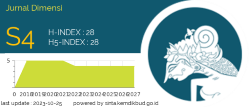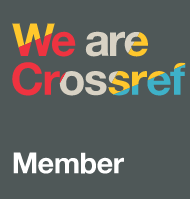TEACHER'S STRATEGIES IN OVERCOMING LEARNING BARRIERS IN EFL CLASSROOM
Abstract
Full Text:
PDFReferences
Ahmed, K. (2022). Psychological barriers in the acquisition of second language: A Non-Native perspective. Journal of Social Science and Humanities, 16(7), 2. http://ejournal.ukm.my/ebangi/article/view/34389
Bachtiar, B., & Puspitasari, M. (2024). Barriers and Strategies in Implementing Innovative and Collaborative Learning: A Case of Indonesian English Language Teaching. IJEE (Indonesian Journal of English Education), 11(1), 61–76. https://doi.org/10.15408/ijee.v11i1.38434
Faudi, F., Husain, B., & Musthafa, B. (2023). Practice and barriers of technology integrated pedagogy in teaching EFL young learners: A critical analysis. Journal of Research in Instructional, 3(2), 185–195. https://doi.org/10.30862/jri.v3i2.251
Gobel, M. D., Malik, H., & Luwiti, S. R. (2024). LANGUAGE BARRIERS: A CASE STUDY ON ENGLISH TEACHING PROCESS TOWARDS STUDENTS’ LEARNING THE LANGUAGE AT SMP NEGERI MOLIBAGU. Jurnal Penelitian Pendidikan Bahasa Indonesia: Reduplikasi, 4(1), 19–31.
Mackiewicz, J. (2018). A Mixed-Method Approach. In Writing Center Talk over Time. https://doi.org/10.4324/9780429469237-3
Marashi, H., & Assgar, F. (2019). EFL teachers’ effective classroom management and learners’ anxiety and learning strategies. Iranian Journal of Language Teaching Research, 7(2), 65–82.
Sugiyono. (2020). Metodologi Penelitian Kuantitatif, Kualitatif dan R & D.
Sukmadinata, N. S. (2012). Metode Penelitian Pendidikan: Penelitian memberikan deskripsi, eksplanasi, prediksi, inovasi, dan juga dasar-dasar teoritis bagi pengembangan pendidikan. Bandung Remaja Rosdakarya.
Susanto, A. (2016). Teori Belajar dan Pembelajaran di Sekolah Dasar. Kencana.
Wulandari, A. I., & Andanty, F. D. (2023). EFL Teachers’ Challenges and Strategies in Managing Delinquent Students. 05(04), 17480–17486.
Zulfikar, T., Syahabuddin, K., Maulidia, K., Emawati, & Amiruddin. (2022). Looking Inside an EFL Classroom: Promoting Productive Learning through Teachers’ Questioning Strategies. Studies in English Language and Education, 9(3), 1019–1040. https://doi.org/10.24815/siele.v9i3.26072
DOI: https://doi.org/10.33373/dms.v13i3.8193
Refbacks
- There are currently no refbacks.

This work is licensed under a Creative Commons Attribution 4.0 International License.











